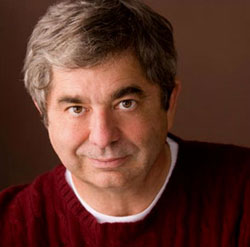WinterGuide 2010
 If you want to see stars, really see stars, you need a place of enchantment “with no stray man-made light,” according to the star-gazing site allroutes.to/thestars. No “light pollution,” as they’re calling it now.
If you want to see stars, really see stars, you need a place of enchantment “with no stray man-made light,” according to the star-gazing site allroutes.to/thestars. No “light pollution,” as they’re calling it now.
A spot where you can take the long view.
Simply put, star observation areas are just places far from the shopping centers where it isn’t just dark, but rather a “dark area” so black it almost swallows you whole. Like the Brower Observatory in Whitefield, the Galaxy Quest Observatory in Lincolnville, and the Damariscotta River Association in Damariscotta.
Enthusiasts familiar with these dark matters love to brag about whose dark is darkest. Consider these blog descriptions of the famous “dead diamond” in Diamond River Valley, just a few ticks into New Hampshire after traveling west on Maine Route 16, where, almost as though to show off, “there is no electricity.”
“We came out after dark, and it was dark! Of course you may have to deal with a moose or coyote tripping over your telescopes, but what a memory for later. The more I think about it, that valley is probably the only one with absolutely no stray man-made light around in this part of New England that you can drive into. I’m sure there are more WAY up in the boondocks of Maine, but…”
So dark you can’t see your feet.
The Central Maine Astronomical Society has some rules for things like this at their hip-chic “star parties.” For starters, “smoking around the scopes is discouraged. The smoke particles will condense on the optics, and lighting up usually blinds the dark-adapted eyes of others.”
Then there’s: “DON’T…shine bright lights.”
How about “We discourage pets, as there may be a problem of loss, or conflict”? What, my Scottish terrier can’t even catch a glimpse of Sirius, the dog star?
You’ve got to hand it to a group of cats who’ve found a way to dismiss what Broadway has in abundance (lights, taxis, the flashing Castro Convertible sign, fun) as light pollution in order to make our inkiest spots in Maine and Wyoming and New Zealand seem more numinously vibrant. “My observatory in Lincolnville is pretty good, but it’s not as dark as places in Mt. Desert and Aroostook,” says Jacob Gerritsen, whose wife, Tess Gerritsen, explores darkness via the dark side of human nature in her novels. “I can still see the sky glow from Camden and Belfast, but you can see the Milky Way pretty easily. That’s something you can’t do in New York City.”
So is creating this singular product, Portland Magazine. As we begin a new year in new quarters at 165 State Street, we are reminded again how lucky we are to be part of an incredible team, working to give you, our readers, a uniquely Maine experience where every issue’s a star party shooting for extraordinary perspective. Close your eyes. Now open them. It’s good to be standing beside you as we begin our 25th year.






0 Comments